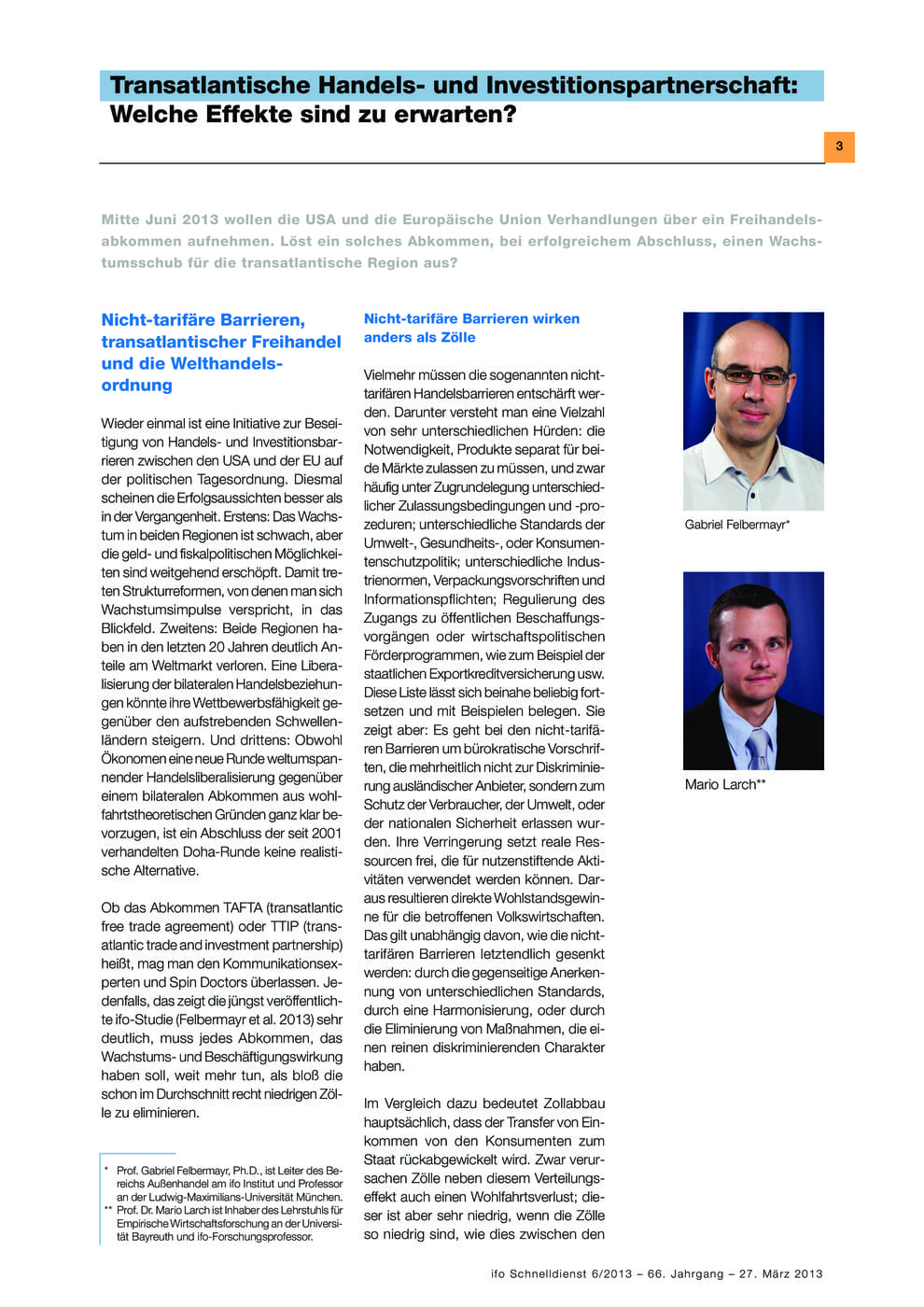Transatlantic Trade and Investment Partnership: What Effects Will It Have?
ifo Institut, München, 2013
ifo Schnelldienst, 2013, 66, Nr. 06, 03-12

The European Union and the USA are due to commence negotiations over a free trade agreement in mid-June 2013. Gabriel Felbermayr, Ludwig-Maximilians-University of Munich and Ifo Institute, and Mario Larch, University of Bayreuth, emphasize that any agreement aimed at creating growth and employment effects must go beyond the abolition of customs and excise duties. The so-called non-tariff barriers, in particular, should be alleviated, as their removal would especially benefit medium-sized companies. It is also highly probable that a transatlantic agreement could also kick-start the deadlocked Doha Round, since bilateral agreements have often been known to trigger a breakthrough in multilateral negotiations. In view of the size of the economic areas concerned, Berend Diekmann, German Ministry of Economics and Technology, stresses the central importance of a transatlantic partnership agreement for prosperity, growth and employment. The worldwide growth potential that could be harnessed from the enhanced implementation of principles jointly developed by the EU and the USA in the field of competition, labour and environment policy should not be underestimated, he notes. Rolf J. Langhammer, Kiel Institute for World Economics, is sceptical about a free trade agreement between the USA and the EU. The conclusion of any such agreement would not only be the “last nail in the coffin for the Doha Round”, but would also tarnish the reputation of the WTO and further debase the concept of “global governance”. The only clear outcome would be the wasting of valuable multilateral negotiation resources over the years.